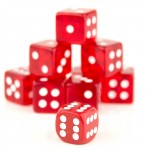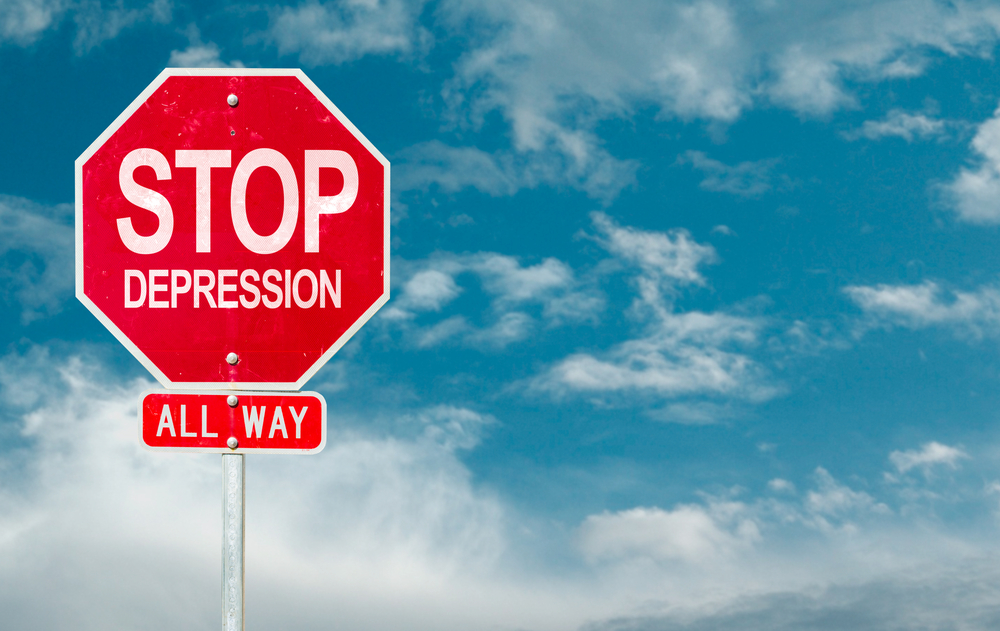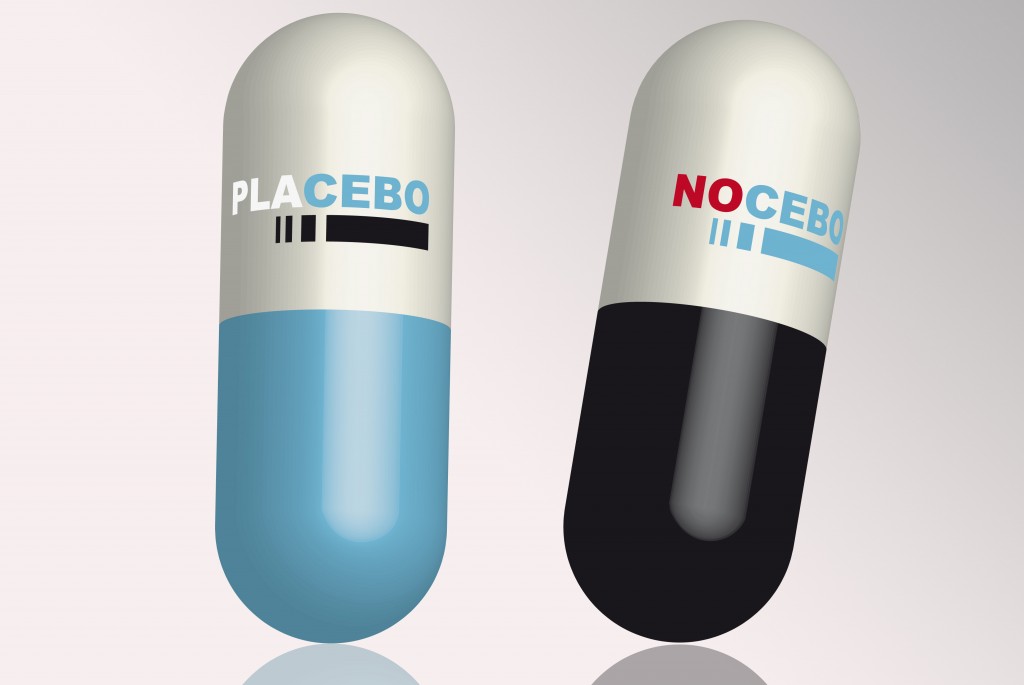
While the necessity of proper control conditions in evaluating the efficacy or effectiveness of psychotherapies, or indeed of any health intervention, is undeniable, what exactly constitutes an appropriate control for an active intervention is far from clear.
In a new meta-analysis published in Acta Psychiatrica Scandinavica, Furukawa and collaborators comparatively examined three types of control conditions (no treatment, waiting list and psychological placebo) in trials of cognitive behavioral therapies (CBT) for adult depression.
Methods
The authors used a meta-analytic methodology called network meta-analysis (NMA). While traditional meta-analysis only allows for the possibility of comparing two interventions at a time, network meta-analysis permits the evaluation of the relative efficacy of all the included interventions, by integrating data both from direct head-to-head comparisons, as well as indirect evidence from studies with common comparators. In this way, NMA borrows strength from the entire network of randomised trials.
The authors included randomised clinical trials in adults, comparing CBT with a control condition. Three control conditions were considered:
- Psychological Placebo (PP): the condition was considered as inactive by the researchers conducting the study, but was presented as potentially active to the participants. Moreover, the number of sessions and their duration, as well as the qualifications of the therapists providing the intervention, had to be equivalent to the active treatment in the study
- No Treatment (NT): participants received no active treatment during the study and they did not expect to receive it after the study was over
- Wait-list (WL): participants received no active treatment during the study, but were told they could receive one such treatment after the study was over
The studies were included if the primary clinical problem treated was depression, evaluated either by a diagnostic interview of by self-report scales. The authors excluded studies focusing on chronic or treatment-resistant depression, and studies where participants had another concurrent primary diagnosis, whether of a mental or physical disorder.

Trials of CBT versus Control for depression were included in the network meta-analysis
The primary outcome of the meta-analysis consisted of the number of patients who responded to treatment, based on changes on the Hamilton Rating Scale for Depression (HAMD), the Beck Depression Inventory (BDI) or any other validated depression scale, at the end of the acute phase of treatment. Analyses were, in as much as possible, intent-to-treat, meaning that they took into account the total number of randomly assigned participants, irrespective of how the investigators in the original studies analyzed their data.
Two independent raters evaluated the included studies for methodological quality, using the Risk of Bias tool developed by Cochrane Collaboration and some additional criteria such as researcher allegiance, therapist allegiance, therapist qualification and treatment fidelity.
The authors first examined individual trials grouped in pairwise, head-to-head meta-analysis and subsequently constituted the evidence network for the NMA and looked at its robustness. They evaluated comparative response rates of CBT and the three control conditions, by reporting odds ratios (OR) and corresponding 95% credible intervals of the OR. Briefly put, the odds of an event represents the number of those who experience it divided by those who don’t and it is expressed by a number from zero (the event will never happen) and infinity (the event will definitely happen).
Results
The meta-analysis included 49 randomised studies, representing 117 treatment arms.
- The results of the NMA indicated a well-connected, homogeneous and consistent network of evidence connecting CBT and the three types of control groups (PP, NT and WL) in the acute phase of treatment of adult depression
- Effect sizes for CBT were substantively different, depending on which control condition they were compared to:
- Psychological placebo (PP): OR= 1.65 (0.76 to 3.13)
- No Treatment (NT): OR= 2.36 (1.31 to 4.26)
- Wait-list (WT): OR= 6.26 (3.90 to 10.1)
- In other words, WL control may generate bigger effect sizes estimates for CBT than NT or PP control
- Moreover, the indirect comparison between NT and WL revealed the former was significantly superior to the latter in eliciting response: OR= 2.9 (1.3-5.7)
- However, the authors note that the statistically significant differences between conditions were lost when they applied exploratory sensitivity analyses to correct for small study effects (i.e. small studies having systematically different effects to the large studies)

This analysis suggests that waiting list controls may generate bigger effect size estimates for CBT than No Treatment or Psychological Placebo controls
Conclusions
The authors concluded that:
The currently available best evidence, analysed by use of NMA, suggested that different control conditions lead to substantively different treatment effect estimates and that WL control may generate bigger effect size estimates for CBT than NT or PP.
They also added that:
In other words, WL could be regarded a nocebo condition if it indeed is inferior to NT, that is, doing nothing.
The authors speculate that participants allocated to WL might be more motivated to remain depressed so they can receive their originally desired treatment (CBT) after the completion of the study period, while those allocated to NT may actively seek alternative treatments.
Limitations
- The methodological quality of the included studies was sub-optimal, as already remarked by other meta-analyses on CBT and discussed in previous Mental Elf blogs. In fact, only a quarter of the included studies were rated as having a low risk of bias
- Importantly, small study effects (i.e. small studies having systematically different effects to the large studies) were notable, particularly in the comparison between CBT and WL
Link
Furukawa TA, Noma H, Caldwell DM, Honyashiki M, Shinohara K, Imai H, Chen P, Hunot V, Churchill R. Waiting list may be a nocebo condition in psychotherapy trials: a contribution from network meta-analysis. Acta Psychiatr Scand. 2014 Apr 4, doi:10.1111/acps.12275 [PubMed abstract]
Sedgwick P. The nocebo effect. BMJ 2013;347:f6130 [Abstract]



RT @Mental_Elf: It’s all in the control group: wait-list may boost the efficiency of CBT for depression http://t.co/1vgwmAxxk1
It’s all in the control group: wait-list may boost the efficiency of CBT for depression: This blog should set … http://t.co/9DqlbtaqPh
Wait-list control may exaggerate apparent efficacy of CBT for depression http://t.co/ljssP7iIfv /via @Mental_Elf
@inductivestep @Mental_Elf or indeed of any other intervention? (Except undesired ones, I guess!)
@inductivestep @Mental_Elf Indeed, great Q. Then again CBT is the most studied for depression, so I guess this has to come with some costs
“@Mental_Elf: wait-list may boost the efficiency of CBT for depression http://t.co/7JrYxkIHLy” more use of nwa.
Today @Zia_Julia on a meta-analysis that shows how waiting list may be a nocebo condition in psychotherapy trials http://t.co/L2o6uhmJ4U
Interesting how different areas of psychotherapy have developed preferences/cultures for different kinds of controls @Mental_Elf @Zia_Julia
A common conversation I have with researchers – what makes a robust control? It’s so important! Via @Mental_Elf http://t.co/qrMF0LcCdN
João Leal liked this on Facebook.
The Mental Elf liked this on Facebook.
Katie Simpson liked this on Facebook.
Study does NOT show that wait list boosts CBT – more likely shows that wait list is harmful to patients http://t.co/kvas7MdGwu @Mental_Elf
Hi @_Lucibee Thanks for your comment. I’m sure that our blogger @Zia_Julia will want to respond http://t.co/L2o6uhmJ4U
@Mental_Elf @_Lucibee Actually MA shows both, OR for comparison with WL are the highest
@Zia_Julia @Mental_Elf It’s a ratio, not an absolute effect size. Need absolute data to be informative
@_Lucibee @Mental_Elf Yes, BUT let’s not forget the efficiency of a psychotherapy is also relative to the comparison to a control group
@Mental_Elf @_Lucibee Also worth noting small study effects were notable particularly in the CBT vs WL comparison
@Mental_Elf @_Lucibee I am a bit skeptical about the nocebo interpretation, but what does remain is that WL comparisons are very problematic
@Zia_Julia have to agree with
@_Lucibee on waiting list piece. Great article but terrible headline… @Mental_Elf
@neurobonkers @_Lucibee @Mental_Elf Title is directly inspired from the article’s section and I think it’s the important policy message here
@Zia_Julia @_Lucibee @Mental_Elf Yup, agree with your interpretation – just w/o context the title may be misinterpreted.
@neurobonkers @_Lucibee @Mental_Elf Point taken, I didn’t want to make it very long and that might have led to it being not that clear.
@neurobonkers @_Lucibee @Mental_Elf If anything, wh is speculative is the nocebo interpretation b/c of its shakiness to small study effects
@neurobonkers @_Lucibee @Mental_Elf CBT happens to be the active intervention here and the authors show its effic depends on the ctrl group
@neurobonkers @_Lucibee @Mental_Elf Also very importantly the authors identify a tight, homogenous network around CBT and its control groups
That is a very dangerous title – it implies that wait-list in some way enhances the effect of CBT for patients. It doesn’t – and from the results it seems it could be actively harmful to them. This is not a cross-over study, so you can’t tell what happens to patients in the control group once they receive therapy. As far as the analysis goes, all they receive is hope of treatment. And the treatment group won’t have been on the wait list.
Thanks Lucy, Do please comment directly on the blog so the blogger and others can respond directly. Not everyone sees these Facebook comments :-)
Yes they do, because you have set them to appear automatically on the blog website (you should really tell your FB followers that this will be happening when they comment here!)
RT @Mental_Elf: Trials of CBT for depression find different control conditions lead to very different treatment effect estimates http://t.c…
RT @Mental_Elf: In CBT for depression RCTs, waiting list control may have bigger effect than no treatment or psychological placebo http://t…
Waiting list control is a nocebo? A reminder that control for non-active-treatment effects hard for psych therapies http://t.co/Hhx6aNNgpZ
Note: the title of this blog was changed at 3pm on Tuesday 17th June.
The original title was:
It’s all in the control group: wait-list may boost the efficiency of CBT for depression
And the new title is:
It’s all in the control group: wait-list control may exaggerate apparent efficacy of CBT for depression
Many thanks to @Zia_Julia @neurobonkers @_Lucibee and @inductivestep for the Twitter discussion that led to this change:
https://twitter.com/Mental_Elf/status/478896574807158784
True Twitter democracy in action! :-)
@neurobonkers @Zia_Julia @_Lucibee @inductivestep Done! Thanks everyone :-) http://t.co/pzNcqUzDsL
Ooh yes, I’d forgotten about that! Thanks for the reminder :-) Good old technology eh? All of your comments will also be stored away in the woodland filing cabinet. The Regimental Elf likes to keep everything organized and properly indexed.
Don’t miss: It’s all in the control group: wait-list control may exaggerate apparent efficacy of CBT for depression http://t.co/L2o6uhmJ4U
Can CBT supporters respond in the face of well-documented criticism? Join our debate today: http://t.co/L2o6uhmJ4U @Zia_Julia
@Mental_Elf @Zia_Julia I think psychotherapy researchers do (or should!) know that you need an active control if possible
@Mental_Elf @Zia_Julia We need to control for the non specific elements do any plausible treatment – expectancy, support etc
@sci_pract @Mental_Elf And that without mentioning researcher allegiance, which is more wide-spread than people seem to acknowledge
@Zia_Julia @Mental_Elf That too…but we do also know about that and should be considering it – not always easy in practice
@Mental_Elf @Zia_Julia We found similar in meta analysis of psycho therapy for child anx – ES much lower if ‘passive’ control
@Mental_Elf @Zia_Julia I am a #CBT supporter but I don’t need to defend the indefensible! Active controls are important
It’s all in the control group: wait-list control may exaggerate apparent efficacy of CBT for depression http://t.co/TzGfIvKoDx | @Mental_Elf
It’s all in the control group: waitlist control may exaggerate apparent efficacy of CBT for depression http://t.co/DyhnQDadPu via @sharethis
It’s all in the control group: wait-list control may exaggerate apparent efficacy of CBT for depression http://t.co/PSnk9Q3Mfo
Hampshire Healthcare Library Service liked this on Facebook.
Most popular blog this week? It’s @Zia_Julia Wait-list control may exaggerate apparent efficacy of CBT for depression http://t.co/L2o6uhmJ4U
“It’s all in the control group: wait-list control may exaggerate apparent efficacy of CBT for depression” http://t.co/FuDpKkGVZi
[…] Mental Elf readers are well aware of criticisms directed at psychotherapy’s prodigal son: cognitive behaviour therapy (CBT). Unarguably the most studied and most recommended form of psychotherapy, CBT has nonetheless been been shown to have some problems (see my previous blogs on CBT for adult depression and wait-list control exaggerating the efficacy of CBT). […]
[…] They were presumably informed and ‘consented’ at the start of the trial vis-a-vis the possibility of further (different or same) therapy at the end of the trial if needed? This effectively makes SMC a wait-list control and the negative impact of such waiting in psychotherapy and CBT trials is well-documented (for a recent example http://www.nationalelfservice.net/treatment/cbt/its-all-in-the-control-group-wait-list-control-may-e…) […]